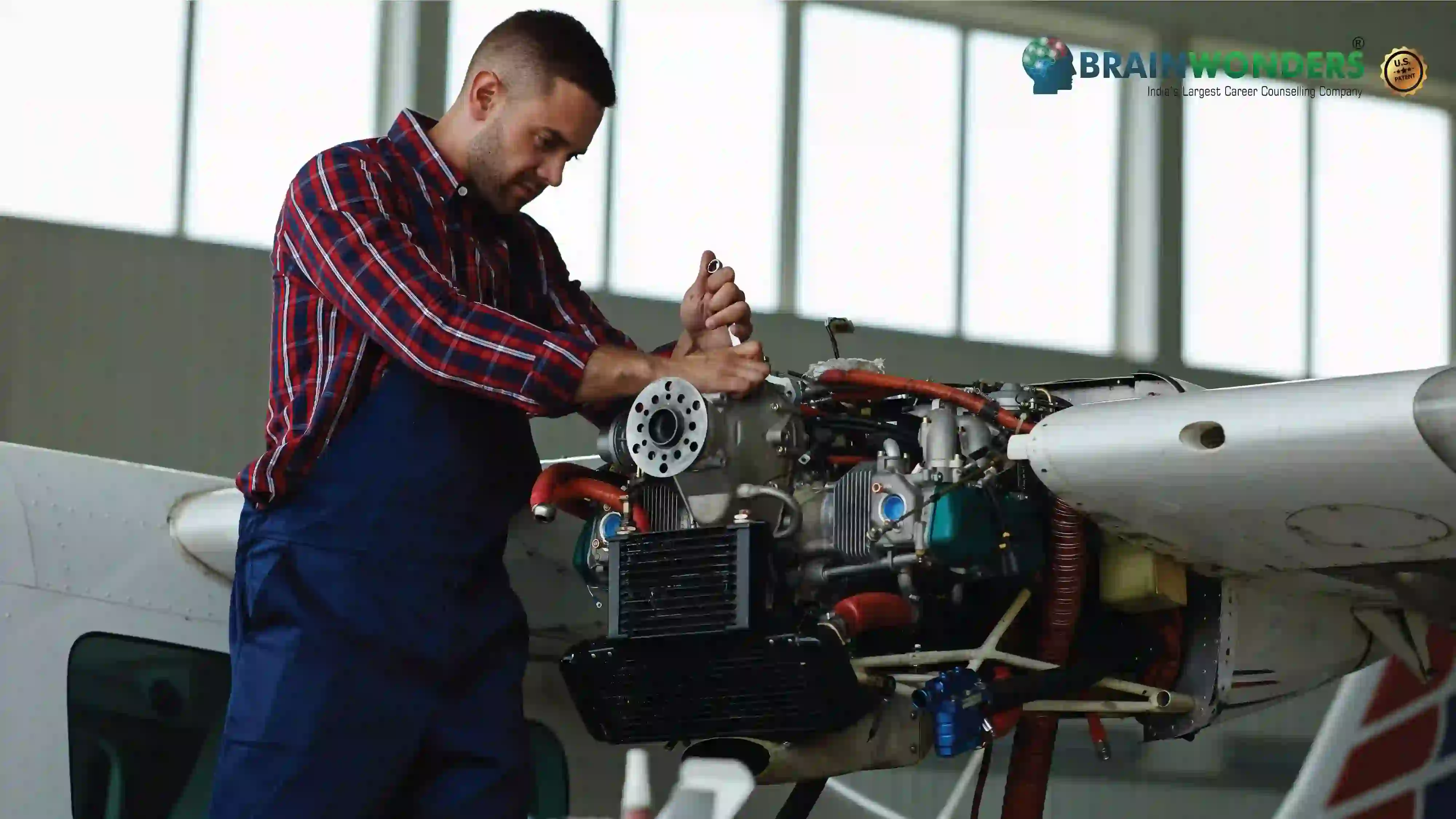How to become an Air Traffic Controller
Overview, Courses, Exam, Colleges, Pathways, Salary

Overview
Who is Air Traffic Controller ?
With the growth in the aviation business, more and more individuals are required to facilitate the smooth functioning and operation of flights. One such important role is that of an air traffic controller. Air traffic controllers are trained professionals who coordinate the movement of air traffic to ensure the safety of the airspace. These qualified experts manage and control the flow of aircraft into and out of airspace and guide pilots throughout the flight right from takeoff to landing safely and efficiently.
Even though the primary concern of air traffic controllers is to ensure safety, they also aim to minimize delays. Air traffic controller jobs require managing multiple aircrafts simultaneously: instructing one aircraft on its landing approach and at the same time, giving another aircraft weather reports which requires making quick and smart decisions as even one small mistake can be catastrophic. The job`s challenging nature and responsibilities often make it an appealing career choice for many people. If you want to be an air traffic controller, knowing what career path to take can help you take the right steps. In this article, we will discuss how to become an air traffic controller, their roles and responsibilities, the skills required, the average salary, and some of the most frequently asked questions for air traffic controllers.
A career as an air traffic controller can be a great fit for professionals who enjoy working in groups, are up for a challenge, and are good at multitasking. Even if the nature of the job is stressful, there can be a lot of job satisfaction. Air traffic controllers typically earn more than many other professions in the aviation industry. There may also be a lot of opportunity for air traffic controllers, as there are a lot of job openings on job boards and government websites.
Typical day at work
What does Air Traffic Controller do?
The roles and responsibilities of an air traffic controller consist of the following tasks:
- Provide clear landing and take-off instructions to pilots
- Control all ground traffic at airports from baggage vehicles to workers
- Communicate important information to pilots such as weather updates and runway closures
- In the event of an emergency, alert airport response staff
- Monitor and coordinate the movement of aircraft using visual references, radars, and computers
Abilities and Aptitude needed
What are the skills, abilities & aptitude needed to become Air Traffic Controller?
The following are some skills that can help you perform well as an air traffic controller: Communication Communication is one of the most important skills for an air traffic controller because pilots rely on the information they provide. Because these messages are frequently time-bound, it is critical to communicate them in precise words and short sentences. Good communication skills can ensure that pilots, controllers, emergency response teams, and the air traffic controller's team all understand the message without going into too much detail. Because English is a global language, being able to speak it fluently is an important aspect of being able to communicate effectively.
Recognize your surroundings Air traffic controllers typically ensure that there is enough space between planes to prevent collisions. This may necessitate air traffic controllers having spatial awareness in order to understand the position of aircraft and respond to any changes in position. While there are a variety of exercises that can help improve spatial awareness, recreational activities such as photography and puzzle solving can be just as effective. Decision-making and problem-solving Air traffic controllers may encounter difficult situations on a regular basis. Even if they follow standard operating procedures when a problem arises, some circumstances may be unexpected and necessitate immediate action by air traffic controllers. Visual problem-solving abilities and quick decision-making can assist an air traffic controller in preventing a potentially dangerous situation by acting quickly.
Teamwork A frequent communication with their team, airport authorities, airlines, air traffic control units, and pilots is required of an air traffic controller. All of these departments typically work as a team to ensure that flights take off and land safely. Working in teams can make it easier to coordinate with various departments while minimising conflicts. Multitasking An air traffic controller may be in charge of several important tasks at the same time. They may work with pilots to coordinate, monitor weather conditions on multiple routes, monitor multiple aircraft movements on the ground and in the air, clear traffic on runways, and much more. Being able to multitask allows them to manage multiple tasks at the same time without becoming overwhelmed.
Pathways
How to become an Air Traffic Controller?
Entrance Exam
Entrance Exam for Air Traffic Controller ?
Courses
Which course I can pursue?
Best Colleges
Which are the best colleges to attend to become an Air Traffic Controller?
Industries
Which Industries are open for Air Traffic Controller?
- Civil aviation industry
- Airport authorities
- Air navigation service providers
- Military aviation
- Aerospace and defence companies
- Aviation consulting firms
internship
Are there internships available for Air Traffic Controller?
There are very few Internships available for air controllers due to the critical nature of the profession and the extensive training required. Air Traffic Control is a highly specialized field that demands comprehensive education and on-the-job training to ensure safety and efficiency. Aspiring Air Traffic Controllers typically undergo rigorous training programs provided by authorized training organizations or institutions. While internships may not be readily accessible, individuals interested in pursuing a career in Air Traffic Control can explore formal training programs offered by recognized institutions or consider applying for entry-level positions within the aviation industry to gain relevant experience.
Career outlook
What does the future look like for Air Traffic Controller?
The air traffic control specialists, also known as the ATCS, work in the ground space. They tend to coordinate, check and control the aircraft movement to manage and handle the distance between the aircraft, the traffic in a particular area, the visibility, and the safety of the aircraft in the air. Though it is ground-level work, it can be quite stressful in case of weather unpredictability, fuel renewal, or any similar emergencies. This job requires a lot of concentration with accurate calculations and precision. In this career, rotational shifts like night shifts, working on the weekends, etc are quite common. So, this career needs a lot of flexibility and patience in the individual to handle the last-minute crisis and the shift-based changes.
Air traffic controller employment is expected to grow at a 4% annual rate from 2020 to 2030, which is slower than the national average for all occupations. Despite limited job growth, an average of 2,500 openings for air traffic controllers are expected each year over the next decade. The majority of those openings are expected to result from the need to replace workers who transfer to different occupations or leave the labour force for other reasons, such as retirement.



